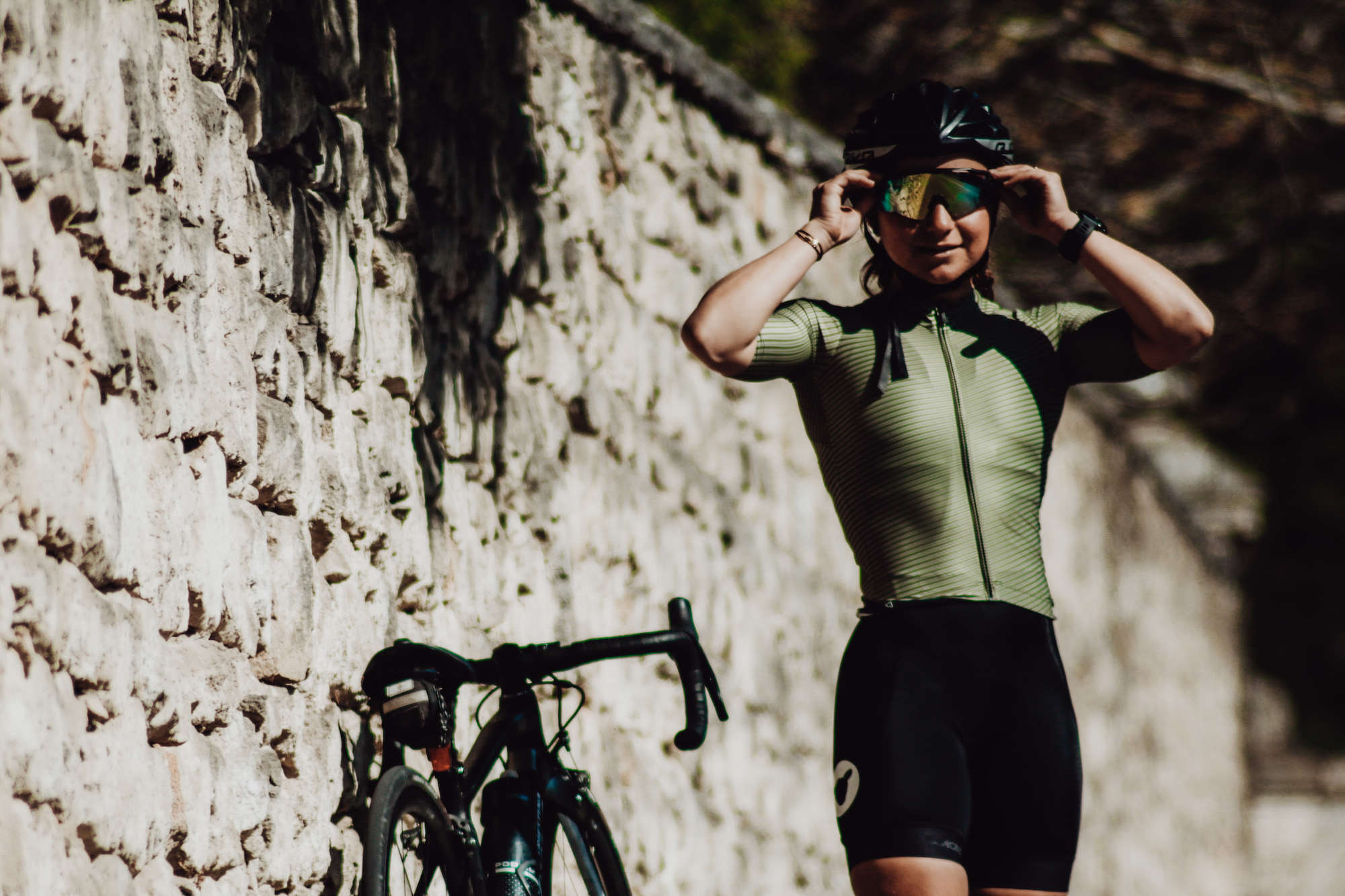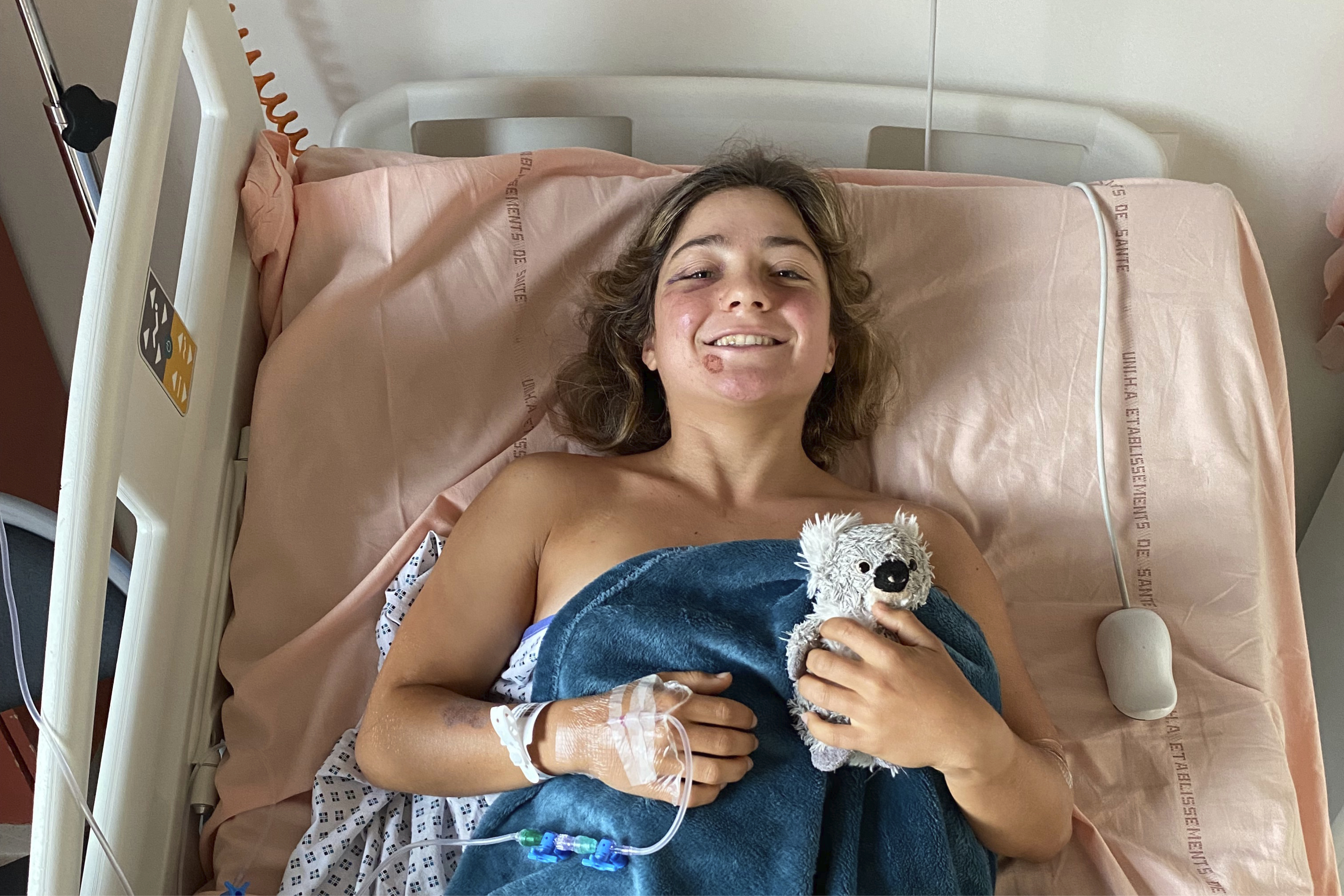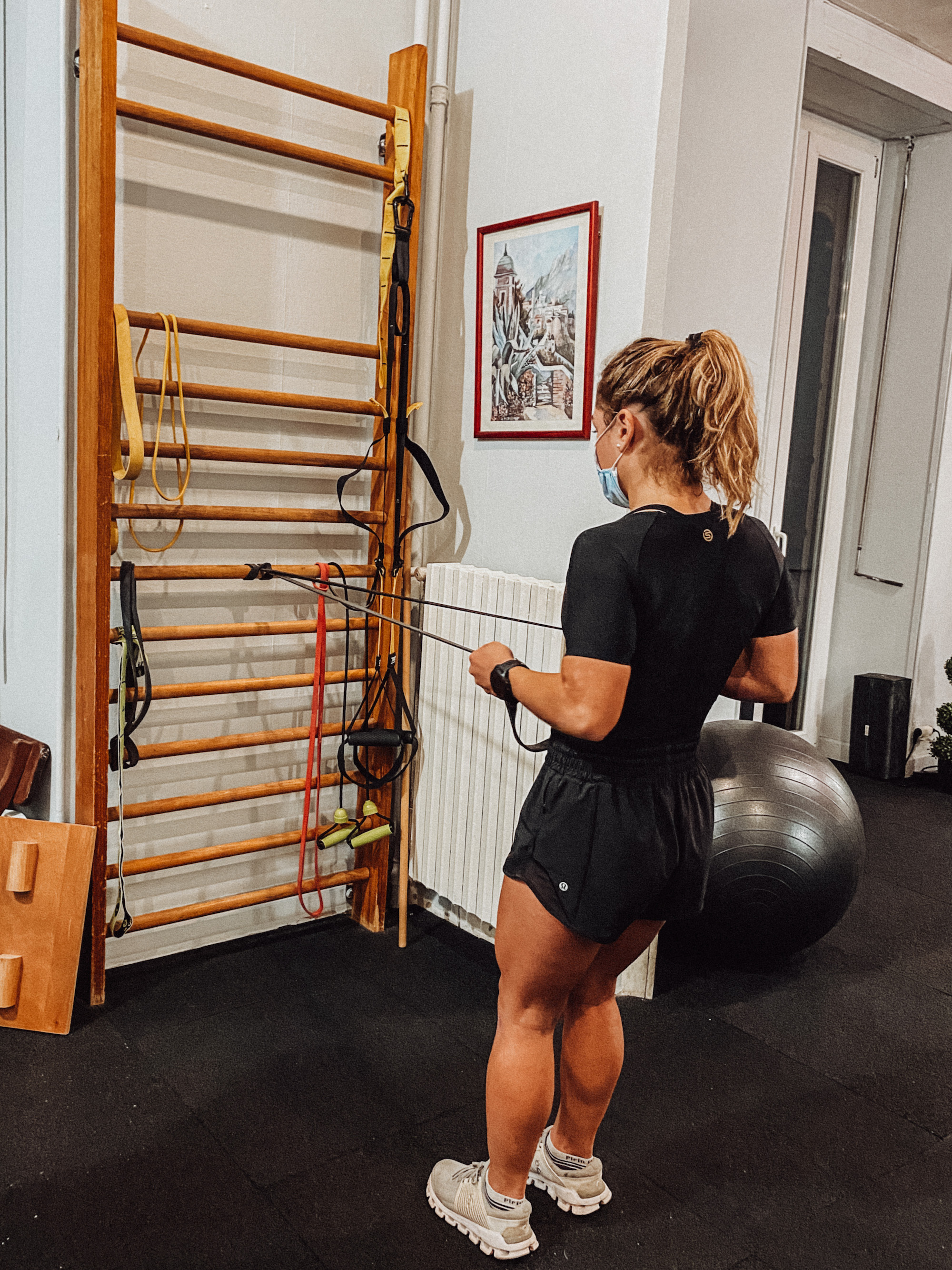How breaking my back changed my relationship with triathlon
Up and coming French triathlete Anne-Sophie Pierre opens up on the moment she broke her back on a training ride and her subsequent journey to recovery

It’s another beautiful sunny day in the south of France and I’m super excited to cycle with my new training partner. I’m feeling strong on the bike and am just so grateful for this new chapter in my life.
Forty minutes fly by, but all of a sudden a lack of concentration causes our bikes to crash into each other. I ‘prepare’ my body, and tell myself, ‘you’re going to fall’, but really I’m not ready for what happens next.
I’m fairly new to triathlon, but my passion and motivation has meant that it’s quickly become a prominent part of my life. I had a good first season, with a few podiums and multiple top 10s.
I’d qualified for the Ironman 70.3 World Championship in Utah. I was just beginning my new training block in the south of France for the French and World Duathlon Championships before calling it quits on my 2021 season.
The day everything changed

I wake up and get ready like usual, but today is special, as I’m going on a ride with my new training partner for the season. We’re heading out for a four-hour session under the beautiful sun, exploring new roads and chatting as we go.
This more than positive atmosphere comes to a halt when our bikes collide at over 35km per hour. I feel my body tensing up for what I believe will be a ‘simple’ slide down the road. But this isn’t what happens.
Instead, my bike goes straight into a concrete barrier and catapults me out and over that barrier. Within moments I’m screaming out in pain and quickly realise what’s just happened. I’d fallen from the road onto the railway tracks five metres below.
My whole body is in pain and I’m crying, praying for it to stop. My training partner is looking down at me from the road, along with a few other strangers who witnessed the whole thing. She’s on the phone to the firefighters urging them to hurry up.
From pain to panic

When the adrenaline finally hits me, the pain is replaced by a state of complete panic. Will I ever be able to do triathlon again? Am I paralysed? No, I don’t think so because I can move my toes. Wait, I really shouldn’t move in case I make things worse…Is this really happening or am I dreaming?
My thoughts are interrupted by the arrival of the firefighters who are bombarding me with questions and worryingly calling the SNCF (the train company) to stop the trains. They put me in what I can only describe as an inflatable bed to make sure my back doesn’t move, and potentially risk worsening my injury. It all suddenly feels very real. I just want to wake up from this nightmare.
I wait hours in the emergency room by myself, scared and without any information about what’s going on. After five hours, the doctor comes to tell me that I’d broken three vertebrae, but they’re not sure they can actually operate.
The specialist surgeon doesn’t operate on everyone and the alternative would be a whole year off sports with a back brace. In fear and pain, I cry all I have and just still lie there in disbelief.
Luckily, the doctor comes back later to let me know that I’m being transferred and having the operation tomorrow.
The first few days of post-op were horrible. Twenty-four hours after the surgery, a physiotherapist asks me to stand up. I looked at her and just started crying. I can’t even move my hips to the side of the bed, so how am I supposed to stand?
Road to recovery

Physically, the first week in hospital was tough. I was in constant pain and discomfort, and struggled to sleep, but mentally I felt a hundred times worse.
On top of that, I was receiving messages telling me to stay positive and use my time productively, but all I wanted to do was cry and do nothing all day. I found it incredibly hard to accept this new reality and move on.
The mental recovery has been a series of steps. For example, accepting that my partner is still training a couple times per day even though I can’t. Accepting that I have to watch my friends do things without me as I cannot sit down for 45 days. Accepting that when I go back to training, I’ll be a complete beginner. Accepting that my body will change and that’s okay.
It’s now been a couple months and the physical pain has mostly died down. I’m doing some strength and conditioning, swimming and indoor cycling, as well as physiotherapy twice a week.
However, I never thought the mental pain would be so hard to endure. I’d gone from 25 hours of sports a week to nothing in 10 seconds. I didn’t see how I could take away anything positive from the experience, despite others saying I should. But in hindsight they were right.
Before the fall, I was burnt out, fatigued and was never in the right mindset to train. I wanted to cut sessions short and spend time doing other things. Having two months of forced rest meant that I realised how much triathlon means to me, how much I love training and how lucky I am to do what I love every day.
It’s made me excited to train again and become even stronger and faster, to attain my highest level. Now I’m focusing on physiotherapy and easing back into training to be 200% ready for 2022.
I know the road back into triathlon isn’t going to be easy or linear and getting back to cycling outdoors is going to be a challenge, but I’m up for it and more motivated than ever.
Top image credit: L Mintico/Madeleine Triathlon




